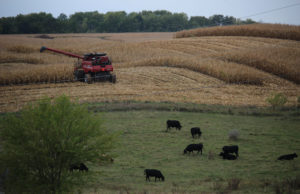It was a surprise in Surprise (Nebraska), but not the welcome kind: Susan Littlefield’s afternoon chores culminated with a smashed hand.
Littlefield, a veteran farm broadcaster and Network Farm Director for the KVRN Rural Radio Network out of Lexington, is no stranger to doing safety stories, but this time, the story is personal.
Littlefield and her family raise registered Columbia sheep, chickens, and a handful of cattle on their 20-acre farm southeast of Surprise. During Thanksgiving week 2017, the chores were left to Littlefield and her daughter while her husband and their boys were in Wisconsin deer hunting.
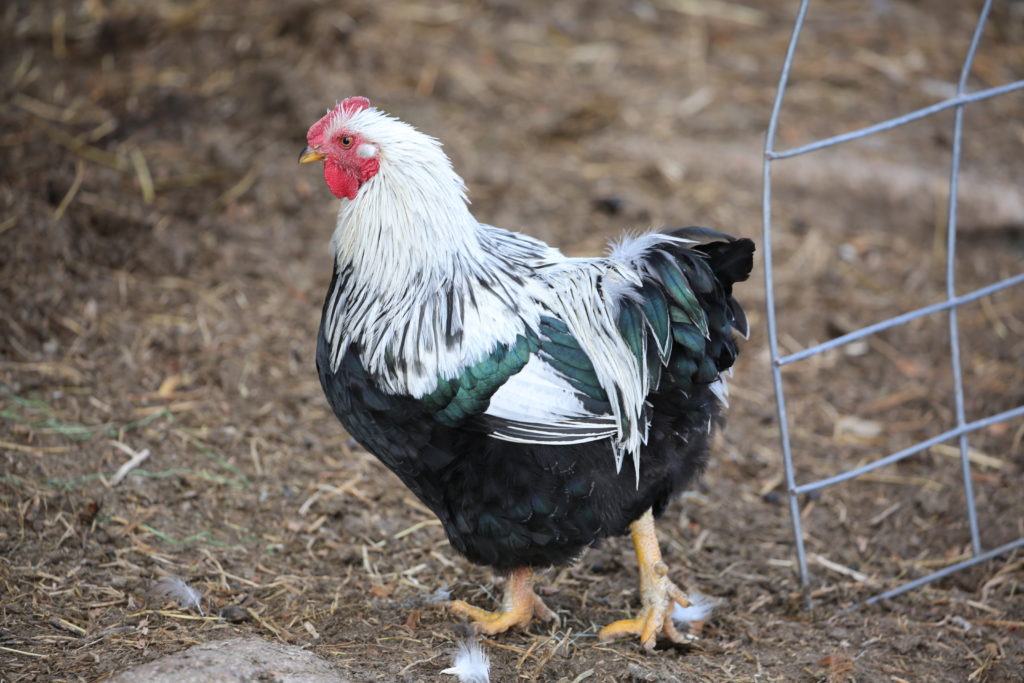
“It was a typical day,” she begins, sharing the experience of a rambunctious steer and her son’s final instructions before he departed on their trip:
“Whatever you do, Mom – don’t let the steers out.“
That fateful afternoon, Littlefield went to feed steers in a fenced pasture adjacent to the barn and the sheep lot. The routine path was from a bin, through the ewes’ lot, through two 8-foot panels used as gates to separate the sheep from a lot holding three Jersey steers.
“For some reason, the dogs weren’t with me,” she remembers, referring to her Maremma, Australian Shepherd, and Blue Heeler, the three livestock dogs that always accompany her.
“This time they must have got distracted by a rabbit or a squirrel.
“So I went in, set the two buckets down, and reached back to get the gate. As I went to grab it, here comes that one steer, running full force. And he’d gotten out before, so he saw the open gate as an opportunity. The last time he got out, it took us 45 minutes to get him back in.”
She recalls the cascading thoughts of a split second: “I‘m home by myself, I am not chasing this steer, I don’t have time for this!”
As she pulled the panel closed, the steer’s head crashed into her hand, slamming it and the panel against two T-posts set in the ground.
The blow knocked her to the ground.
He had her in a corner with an electric fence above her – definitely “not the place to be grabbing ahold of!”
What seemed like an eternity with the 1300-pound beef standing on her calf and thigh muscles lasted maybe a minute, she estimates.
She used her arms to protect herself, fearing that he’d start butting her head next.
But then, maybe thanks to the dogs that came running after hearing her scream, or maybe of its own accord, the would-be runagate turned and walked away.
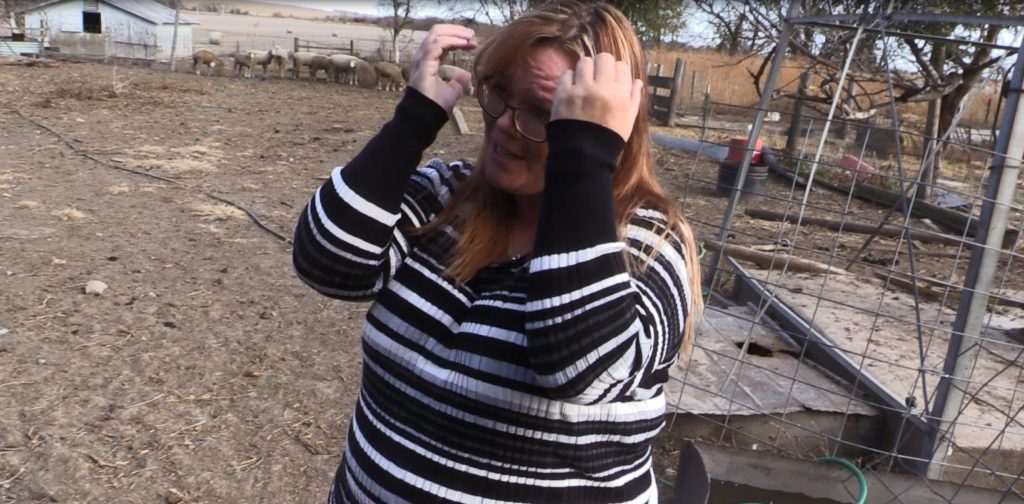
“I got up, dusted myself off and might have said a few choice words, and I finished feeding,” she remembers, before going in to ice her hand to control the pain.
“It’s funny, the things that go through your mind in the moment,” she explains. Littlefield, who’s also a rural firefighter and EMT, wondered if her daughter would come home to find her there on the ground, and if she’d have to call 911 to have her own colleagues come get her.
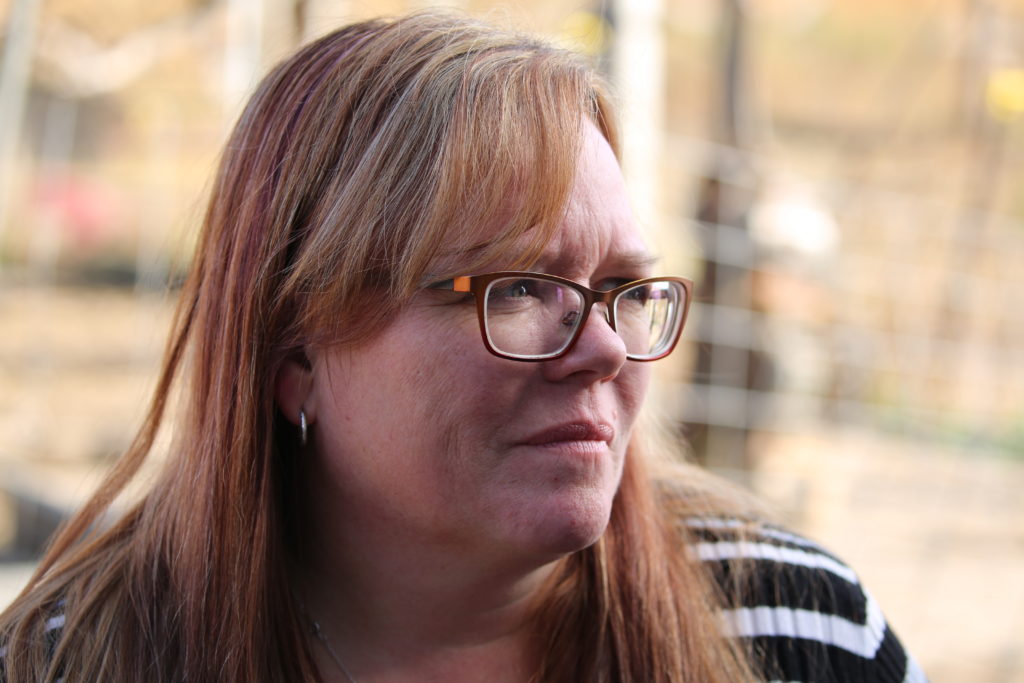
Afterwards, “I sat out under the windmill and thought, ‘How stupid…why? Why didn’t I just let him out? Why did I think I had to close that gate?” …because the other gate was already closed.
After the fact, you think about that, but you don’t think of it during that time.”
Littlefield tried to ignore her pain, figuring the injury was ‘just a sprain.’ But two weeks later, she had shooting pains up her arm and was unable to write. At that point, she went to the doctor, who initially suspected a sprain – until he reviewed the X-rays that revealed thumb fractures. He sent her to an orthopedic surgeon.
By Christmas, she had a cast from the tip of her thumb to just below the elbow. She went through two cast changes, followed by a month in a splint and physical therapy.
But pain that was, at times, astronomical just didn’t dissipate, and her hand kept swelling.
In late March, she underwent surgery to remove the crushed basal joint and restore thumb mobility, using a tendon graft taken from her forearm to substitute for the damaged joint and torn ligament.
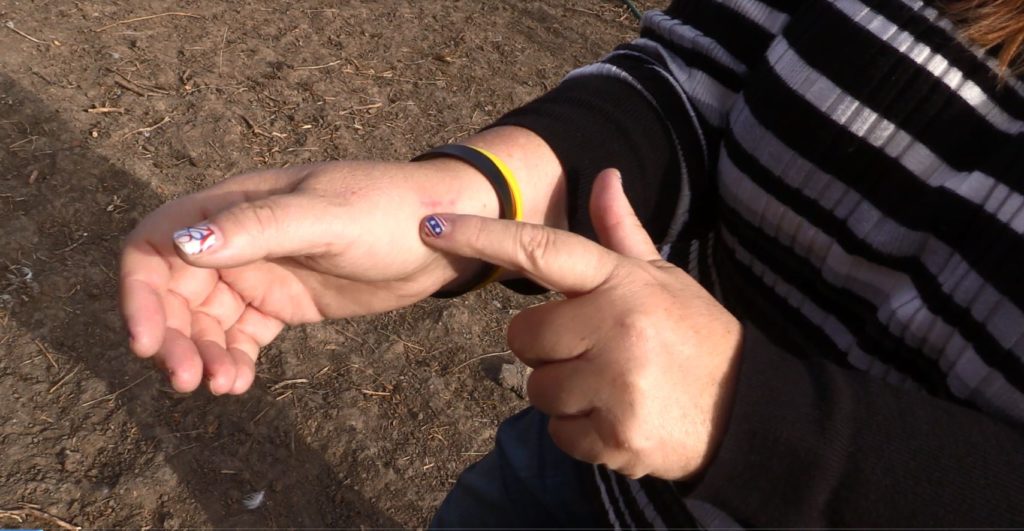
In typically stoic farmer fashion, she tried to downplay her injury down to herself and others. She missed just a day of work – for surgery – and was able to keep her cast off camera until she had a morning TV gig at a different studio and didn’t realize the camera had a shot of her casted arm resting on the counter.
“Before I got off the air, my phone was buzzing… people messaging me, ‘what did you do, why are you in a cast?’” It forced her to come clean about what happened.
But playing down her injury as ‘just a livestock injury’ or ‘a small injury’ didn’t work with livestock producers who set her straight about the other possible outcomes:
“’You could’ve lost your hand … or your life.’”
A year later, she continues work to improve mobility, but won’t regain the level of function prior to her injury. She works to touch her thumb to her pinky, and she can’t write for extended periods. Opening a jar with the right hand is impossible without the hard base of a thumb joint.
Littlefield understands how easy it is to become complacent again, now that she’s had a year continuing chores without further mishaps, and she emphasizes how important it is to make changes to ensure the occurrence and opportunities for injuries don’t recur.
She jokes that ‘the other guy’ ended up in a body bag in a deputy’s freezer, referring to the steer – in butcher’s paper – going to the local deputy shortly after her husband returned from hunting. She and her husband didn’t accept the risk of her kids being hurt by the steer, knowing their injuries would likely be worse than hers.
She changed the feeding routine, now using a different gate at the other end of the lot, one that closes automatically.
“And I make sure the dogs, at least one of the dogs, is with me at all times,” she adds.
A good rule of thumb.
More Information
- UMASH Dairy Handling Resources
- UMASH Farm Safety Check: Working Alone
- UMASH Farm Safety Check: STOP-THINK-ACT
- CS-CASH: Safe Livestock Handling Flyer
- CS-CASH: Safe Livestock Handling Checklist
- CS-CASH: Feedyard Worker Safety
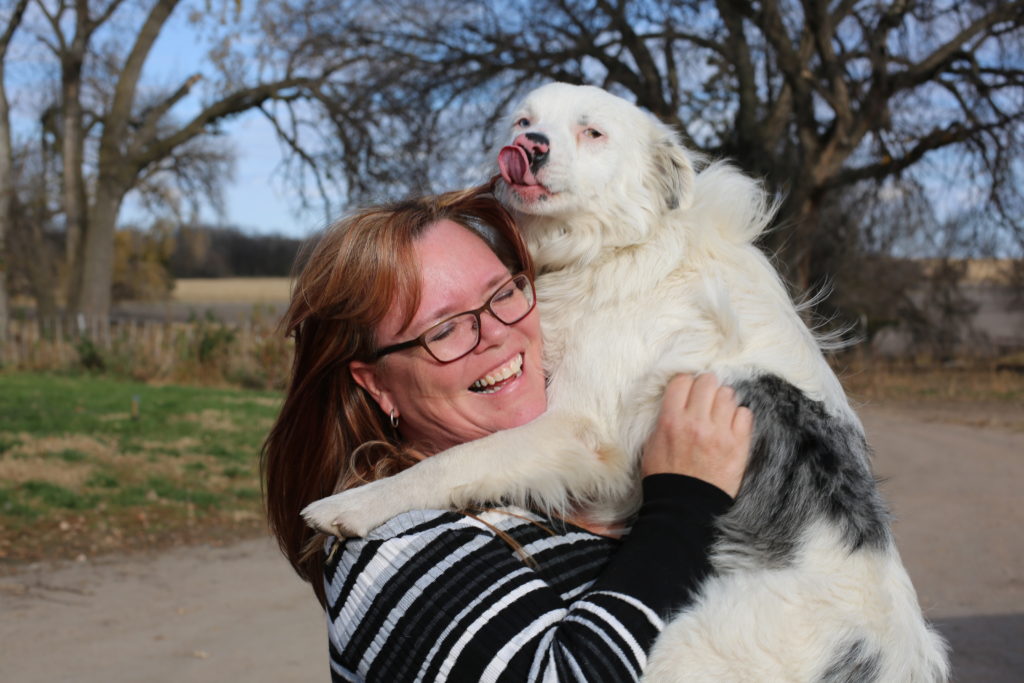
An edited version of David’s story was published in Iowa Farmer Today.
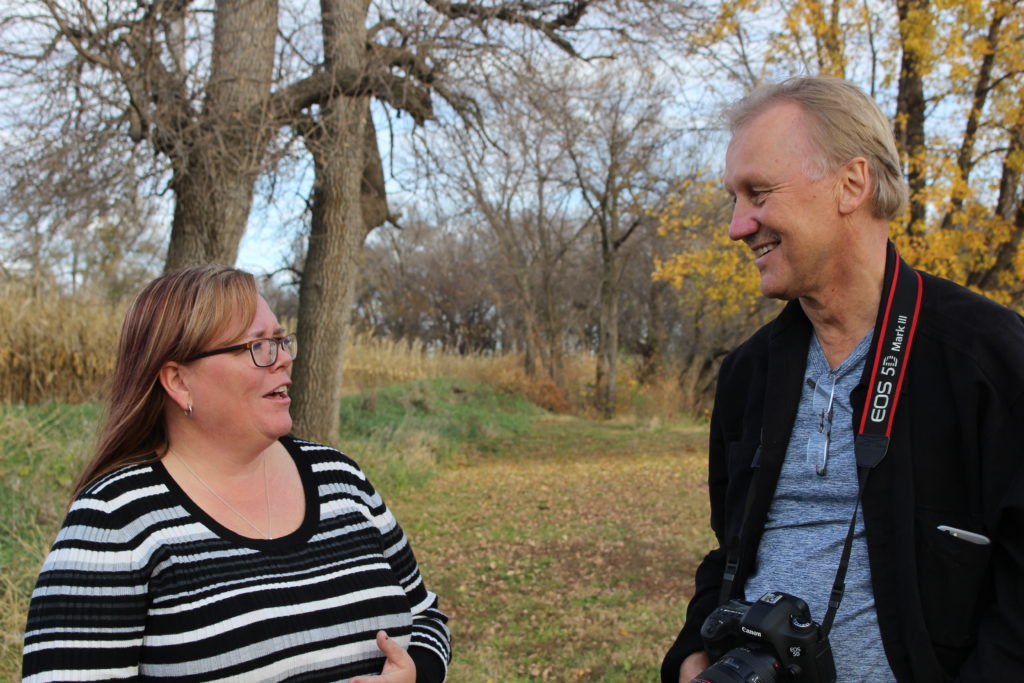
Story | Stephanie Leonard
Photos | Risto Rautiainen, S Leonard
Video | R Rautiainen
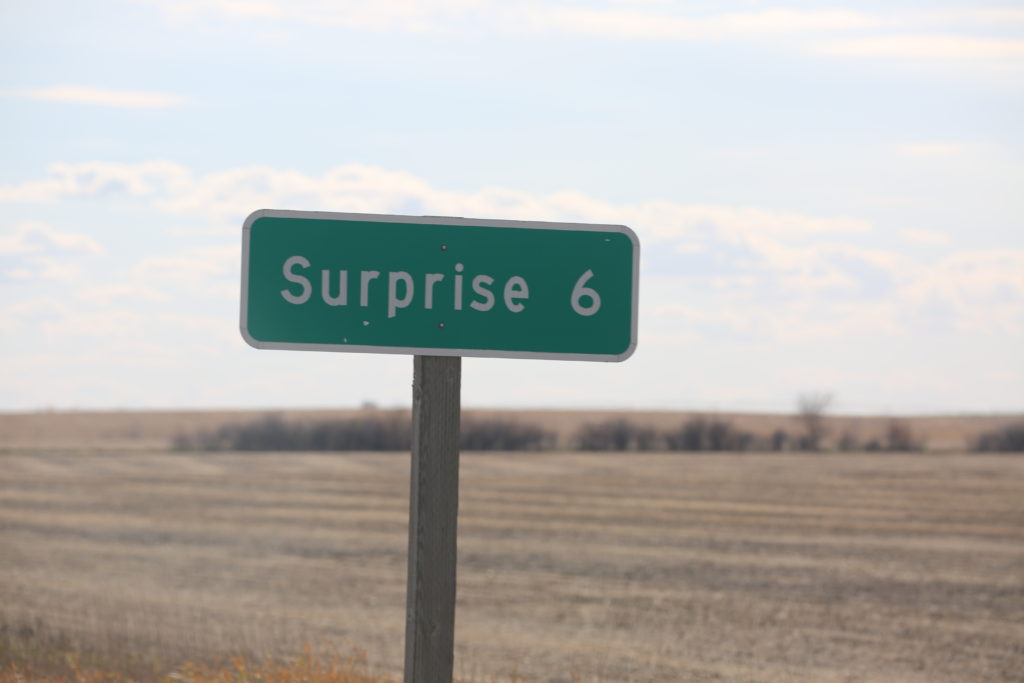
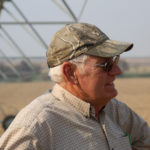 Next Post
Next Post